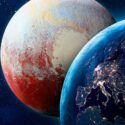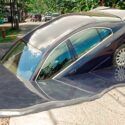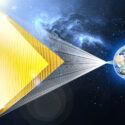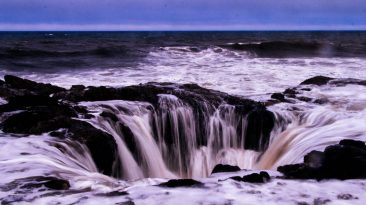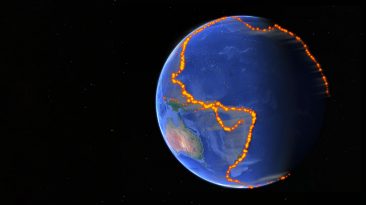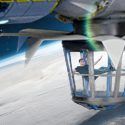Deep under Europa’s thick icy surface lies an ocean larger than all of Earth’s oceans combined. But it’s pretty useless way out there. Let’s ship that water back to Earth. How would you be able to mine the water from under all that ice? How long would this whole expedition take? And would this water even be drinkable?
Even though it’s slightly smaller than our own Moon, scientists theorize that beneath its frozen surface could be nearly twice as much water as on Earth. Most of what we know about this moon is from information gathered by the Galileo spacecraft. But Europa has been visited by four other spacecrafts as well. The journey to Europa is a long one.
It’s located five times further away from the Sun than Earth. With our current technology, a space probe could reach this moon within three years. But if you want to send a ship with a crew of astronauts to mine, collect and transport water back home, you’re going to need a lot more time. You’ve been waiting decades for this moment.
NASA is finally ready to send a large spacecraft to Europa. And you’d be on board. Getting your big ship out to Jupiter’s icy moon would require you to get a little boost. Using a gravity assist flyby technique, you’d pick up some additional speed by swinging past Venus or Mars on the way. With this technique, you’d be borrowing a bit of momentum from these planets’ own orbits around the Sun.
You’d slingshot your ship out of their orbit at a faster speed than you entered it. Or slower, in case you’re on track to zip past your destination. When you arrive at your destination the first thing you’d notice when you stepped out of your ship would be how cold it is. Near Europa’s poles, temperatures could be as low as – 223 °C (- 369 °F). And it would be dark.
Here, you’d only be getting 4% of the sunlight you’d be used to back on Earth. But you’d be dazzled by the pulsating green light of the icy surface. This glow-in-the-dark effect would be thanks to Jupiter constantly drenching Europa in high-energy radiation. And Jupiter would be almost 24 times larger in the sky than our Moon is to us.
It would be time to drill through the ice. And this would be hard work. In order to reach the water below, you’d have to drill deeper than the deepest hole ever drilled on Earth. The Kola Superdeep Borehole in Russia goes down 12.2 km (7.6 mi). On Europa, you’d need to go twice as far. And this could take you a while.
Scientists in Antarctica drilled there at a rate of about 1 m (3.3 ft) every six minutes. It took them three days to reach a depth of 730 m (2,400 ft). Now, scientists estimate that Europa’s ocean could have a depth between 60 and 150 km (40 to 100 mi). That would make it almost 14 times deeper than Earth’s Challenger Deep, the almost-bottomless pit of the Mariana Trench.
After all this travel and work, you’d finally be able to take a sip of this ice-cold, extraterrestrial water for the very first time. But you’d spit it out pretty fast. It would taste a lot like ocean water back on Earth. Maybe you’d better check its composition now before loading it up for the trip home. Based on Europa’s surface and rocky interior, this water would likely have a mix of magnesium sulfate and sodium chloride. In other words, Epsom salt and table salt.
Yeah, this water would undoubtedly make a more relaxing soak in the tub after all that drilling. In order to drink it, you’d need to desalinate it first. This process would freshen it up enough to quench your thirst. This expedition would be too expensive an adventure to return home empty-handed. The uncrewed eight-year Galileo mission to study Jupiter cost about $1.39 billion.
So the price tag of your mission would be, well, astronomical. Would it have been easier and cheaper to just desalinate our planet’s ocean water? Well, no time to worry about that now. You’d load up your ship with as much water as it can carry and get ready for the long journey back to Earth.
As you’d look out on Europa’s glowing surface getting further and further away, you’d remember that your spacecraft is loaded with water from another celestial body. And you didn’t even think to look for signs of biological life. Time to turn the ship around and look for aliens.
Sources
- “31 Facts You Need To Read: Distance From Earth To Europa!”. 2022. kidadl.com.
- “FAQ | Mission – NASA’s Europa Clipper”. 2022. europa.nasa.gov.
- “How Does A ‘Martian’-Style Gravity Assist Actually Work?”. Nast Condé. 2019. wired.com.
- “NASA – How Far? How Faint? “. 2022. nasa.gov.
- “Europa Glows: Radiation Does A Bright Number On Jupiter’s Moon – NASA’s Europa Clipper”. 2020. europa.nasa.gov.








